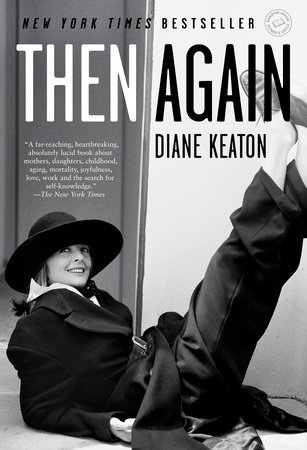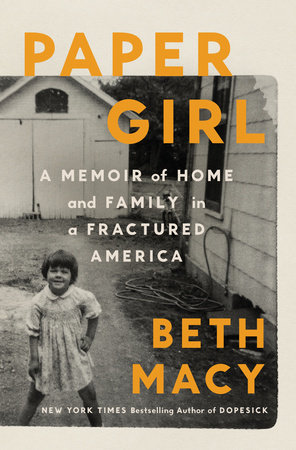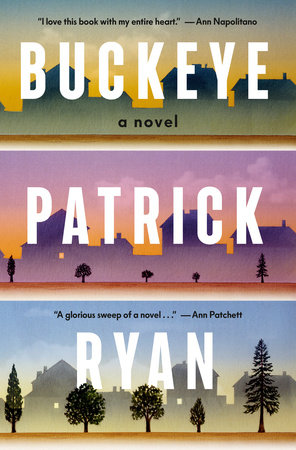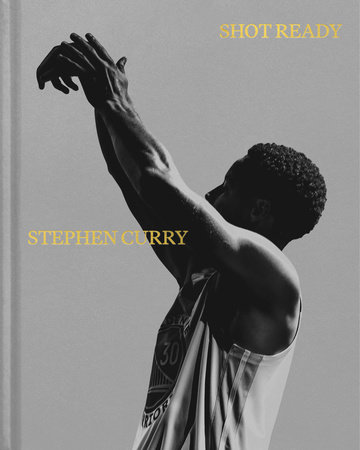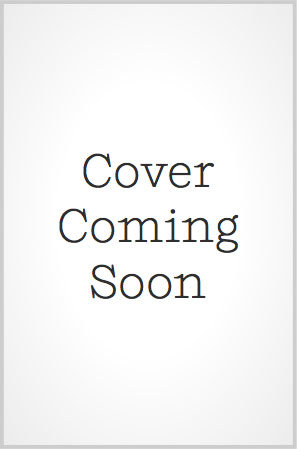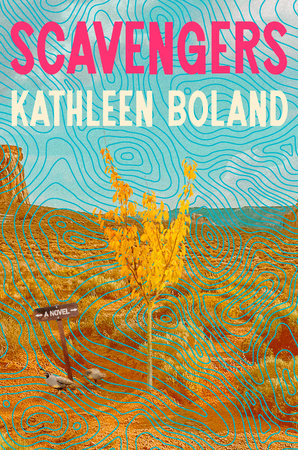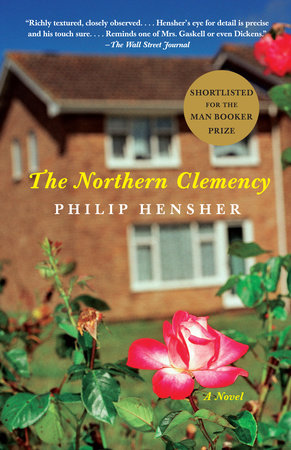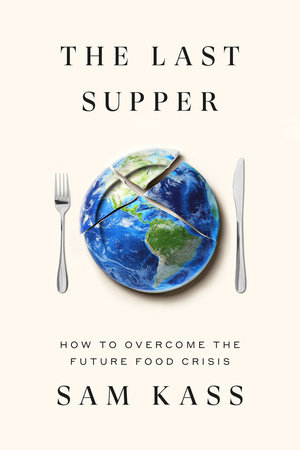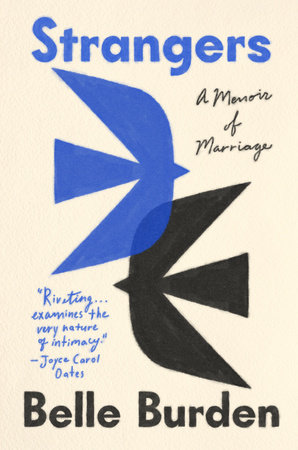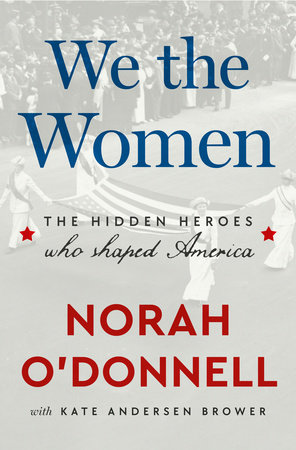A CONVERSATION BETWEEN
DIANE KEATON AND ANNA QUINDLEN
Anna Quindlen: The first thing I have to ask you about is the structure of the book, because it’s so much more like the way we think about things, as opposed to the linear way in which books like this are usually constructed. I kept wondering whether you pictured it that way from the beginning or if that’s what developed as you were writing.
Diane Keaton: It kind of goes back to the idea of collage. I had mountains of correspondence, my mother’s endless journals, my father’s few letters, scrapbooks, photo albums, and my own half-baked journals. I didn’t really have an ap- proach. I just randomly started reading one of Mother’s journals. After I finished it, I found one of my own I had written the same year. So I read that too. Then I started edit- ing Mom down, then me, and after that I began to write in response to both of us. I began to compare and contrast our lives. It helped. The book became a kind of editorial process I felt comfortable with. Of course, the result was a mess, but I sent it to my editor, David Ebershoff, anyway. He would encourage me and always say, “Diane, remember, writing is rewriting.” I took his advice. Rewriting was like memorizing a script; I just kept going over it, and over it and over it again. It was like the old Repetition Game I learned when I was studying acting with Sandy Meisner—you keep repeating until something new comes. Part of the Repetition Game re- quires spontaneous response to your partner’s behavior. It was easy to respond to my mother. She was the most impor- tant person in my life.
AQ: Were you astonished when you realized how much writ- ing your mother had done on her own without any thought of publication or pay?
DK: I think about it all the time. I think, “What would it be like if I had read the journals before she was gone, before I started to write Then Again?” I miss her. Now that I know so much more about her intimate experiences and longings, it breaks my heart.
AQ: Did it make you sad that she had this obviously enor- mous facility and yet she didn’t get to use it out in the world?
DK: Oh, totally, and it made me feel guilty too, because I had an opportunity to help her, but I’m sorry to say I didn’t. I was, let’s just say, consumed with my own career choices and worries and romances.
AQ: I’d like to talk a little bit about the differences and the expectations for women in their lives when your mother was a girl, as opposed to those today for Dexter, your daughter.
DK: I was thinking about your mother, Prudence, in Lots of Candles, Plenty of Cake. Our mothers were very different. Dorothy grew up near Hollywood. It had an effect on her fantasies and expectations. But she kept it a secret. She didn’t talk about her dreams. As a mother she encouraged us to realize ours. Being the oldest of four, I was most sus- ceptible. And Mom did nothing but support me every step of the way.
AQ: So, do all of us feel as though somehow we’re living out our mother’s dreams?
DK: I do.
AQ: I don’t think my mother had those kind of dreams ex- actly, but I do feel as though I’m paying forward for the life that she couldn’t have, the college education she couldn’t have, the work she couldn’t have, and that I got. But, what’s really powerful here is over the years, and with all my work, I’ve always felt like one of the greatest gifts of writing is that you can bring the beloved dead back to life. And I felt like your mother was so completely alive and present in this book, and I wonder if that was a kind of a solace to you, that Dorothy Hall is alive on those pages?
DK: Almost. Not really. I wish she could have experienced it. But then I worry if she might have felt betrayed. She was a complicated woman who wasn’t encouraged to be indepen- dent. I worry about the choices I made on her behalf. She revealed so much to her silent audience. Would she have written it down if she knew it would be read? We all try to protect ourselves. We all try to hide our darker side. I know I do. Would I have liked it if my mother wrote about the more ugly aspects of my life? My mother endured a lot of pain. I included some of it in the book. So, is there solace? I don’t know. One thing, though: I think she would have been proud of how well she wrote.
In her fifties she looked back and wrote about her youth in such a heartbreaking way. She wasn’t allowed to wear lip- stick or go to dances. She was taught to follow the restric- tions of the Methodist Church. She ruminated on the blood of Christ, and the sacrifice, but what she really wanted was to go to the movies, and have fun, and just be a girl. I think she would have liked to know her thoughts on being a girl in the 1930s were given an audience.
AQ: How did your siblings respond to the book?
DK: They’ve gotten used to the fact that I’m the performer in the family. I don’t think it’s been easy for them, but they love me, and I love them very much. My brother, Randy, could care less. He’s living in another kind of world—his own world. He has no competitive feelings or a sense of loss over the fact that in my family I got, well, an inordinate amount of attention.
AQ: What about your kids? Did they read it?
DK: They don’t really have any interest. Which, by the way, I
think is perfectly normal. I wouldn’t expect them to.
AQ: How old are they now?
DK: Duke is eleven, and Dexter is sixteen. Dexter is a very different kind of person than I am.
AQ: Do you like that about her, that she’s different from you?
DK: It’s one of the great things in my life. My siblings and I share many similarities. We’re too sensitive, too easily hurt, and insecure. This is not true of Dexter. She’s nothing at all like me, which is a kind of a blessing. The choice to adopt Dexter was the best decision in my life. It opened up new possibilities with regards to love.
AQ: I wrote a novel published several years ago called Every Last One, which is largely about motherhood, and I dedi- cated it to my three children and said, “To my children, who saved my life.” And a lot of people said to me, “What did you mean by that?” and I was astonished that they didn’t understand. And then I get to this sentence in your book, “They’ve saved me and I know what from: myself.” And I thought, “Well, here’s a kindred spirit.”
DK: Don’t you think most people feel that way?
AQ: Well, I hope so.
DK: Your audience does. Of which I am part—your audi- ence. Your memoir, Lots of Candles, is a very moving teach- ing experience. One of the things that really stood out to me was your chapter on girlfriends. It made me reflect and also worry about how little time I have for nurturing friend- ships. I’m so busy. It’s odd to be this busy at an age when I’m supposed to be toning things down. The value of friend- ship is immeasurable. I really have to try to make more of an effort.
AQ: I didn’t have time for my girlfriends when I was in my thirties because of Quin, Chris, and Maria, but now that they’re in their twenties and working and dropping in when- ever, I have much more time for my girlfriends.
DK: So much of Lots of Candles was inspirational, and thought-provoking too. I loved the Henry James quote. “Three things in human life are important: the first is to be kind; the second is to be kind; and the third is to be kind.”
AQ: Isn’t that amazing, because you wouldn’t think that Henry James was the guy who would figure out that that was the point of life. One of the things I found when writing this book was that I kept surprising myself. I kept learning things about myself and my life that hadn’t occurred to me, really, until that moment, and I kept wondering whether you felt the same way about Then Again. Whether there was an ele- ment of discovering yourself as you were writing this down.
DK: Oh, yes, because it forced me to think about the choices I made. You talk about self-discovery in your book. But you also focus on the great privilege women were given from the feminist movement. You talk about the choices we were given. I had all but forgotten. I took them for granted. In any event, I did discover things about myself in the process of having made the choice to write a memoir. Writing gave me the feel- ing that time lingered. I let myself slow down and rework what I wanted to say instead of being impulsive like I am in “real” life—whatever that means.
AQ: Did you find it pleasurable?
DK: I did. Like I said before, I like working, in this case writ- ing. I like expression in any form, but writing is different. It’s almost like you let your mind wander, drift, and sometimes take you to new places. It’s quietly riveting.
AQ: In the book Sandy Meisner, the acting teacher, says to you, “Someday you’re going to be a good actress.” Do you feel like a good actress now?
DK: I think the life lessons Sandy gave me are more impor- tant than my acting skills. He kept saying, “When you get older, you’re going to know more, you’re going to feel more, you’re going to understand life more.” I remember listening to him and thinking, “What the heck is he talking about?” Now that I’m the age he was, I understand. But I also understand it’s not something audiences are drawn to. The beauty of youth is powerful, but so is youthful talent. The newness of it is incomparable. Anyway, I don’t know if I’m a better actress. But I do know that the things Sandy Meisner taught me are substan- tial. He taught me to listen. He taught me that listening is a way of enlarging your life. My mom was an active listener. She was a brilliant listener. She was not judgmental, and she never gave advice. On the one hand I could have used more advice, but on the other she encouraged me to find my own way. Now it’s my turn to listen.
AQ: Are you good at that? Do you look at yourself and say, “I’m a good mother”?
DK: The jury is out. I don’t know. I hope I am. I surely love them. But I’ll tell you something, I don’t like it when I hear parents say they’re doing the best they can. What does that mean? To me it means they’re not questioning what they need to examine. I don’t know what “best” is, but I do know—here we go back to the same old thing, bear with me, Anna—anyway, I do know listening without judgment is in- valuable. I feel good about finally taking that lesson from my mother and Sandy. I really believe Dexter and Duke have to learn to think for themselves.
AQ: Do you feel like you’re trying to channel your own mother?
DK: No, not really. But I do think she was a great mother. I do.
AQ: There’s a great gift to having had a good mother, and I say that not just as woman who did, but as a woman who has many friends who didn’t. And you see a clear difference in how they think about themselves and how their mothering is affected by it.
I want to go into a little cul-de-sac here. Have you heard anything from your former lovers about the book?
DK: Not one thing. I don’t think they’ve read the book. Why would they? It’s a mother-daughter story. And anyway, like me, they are late-age parents. I know they’re caught up with their kids and their lives. We were together such a long time ago. I really loved my experiences with them, but I have to say, I wasn’t marriage material. You talk about marriage in your book, how marriage is about the two of you. I never thought about a lifelong partnership, or how to manage the reality of such a commitment. I was enthralled by the ro- mance, but it didn’t bring out the best in me. And anyway I was at the height of my so-called fame. Fame didn’t bring out the best in me either.
I was in my early teens when I began to sense that some- thing was going on quietly between my mother and father. That scared me. Mother’s world was us kids. When Dad came home after work, the atmosphere changed, and it wasn’t for the better. As much as I think Mom was in love with Dad for the forty-some years of their marriage, and even more after he died, I knew their relationship was frag- ile. I knew men and women were very different, and I knew Mom got the short end of the stick.
AQ: There’s one point in the book where you talk about how—I laughed out loud—how Blythe Danner and Jill Clay- burgh would get the parts you wanted because they weren’t, in your words, “too nutty.”
DK: I always heard that they liked me, but I was too nutty.
AQ: I wondered, because you were so young when all this was happening, did you ever think about or try to massage your personality into some more universally acceptable shape, or was that just a complete no-go?
DK: It was a complete no-go. I didn’t know how to trans- form myself into someone else, and I didn’t want to either.
AQ: You do seem very specific.
DK: Yes, I’m sorry to say.
AQ: No, why are you sorry to say? And you mentioned earlier that people may be more interested in younger ac- tresses, but you made one of the most widely seen, most popular movies about what it’s like to be a mature human being, Something’s Gotta Give.
DK: Well, that was because of Nancy Meyers, the writer and director. Through various periods of my life she saved my career. The studio didn’t want me for Baby Boom because I’d appeared in a series of unsuccessful movies, yet somehow Nancy and her husband, Charles Shyer, managed to cast me anyway. When Disney didn’t want me after the fiasco of The Little Drummer Girl, they both insisted I play Steve Martin’s wife in the Father of the Bride series. More time passed, I was in my mid-fifties. I was no longer a movie actress, at least not a viable one, when Nancy saved me one last time with Something’s Gotta Give.
I remember sitting across from her, swear to God, when she said, “I’m going to go to Jack Nicholson.” I thought she was out of her mind, because I knew Jack Nicholson was never going to act in a chick flick. Cut to . . . The point is, when Nancy makes up her mind, there’s no stopping her.
AQ: It’s a movie about people who are grown-ups, and that’s not something we see in the movies very often.
DK: No, not in that romantic-comic way.
AQ: Are there other people that you feel that way about, as though they saved your life?
DK: Well, Woody. I mean, clearly Woody. He gave me my acting life. He’s the reason for everything and always will be.
AQ: And it also sounds like he was personally good to you.
DK: Oh, I love him. The thing about Woody is he’s almost impossible to get to know. After I was cast in Play It Again, Sam, I was around him every day for nine months. If he walked out of rehearsals I was there. If he went to lunch I was there. I was unavoidable. The truth is, in my own way . . .I pursued him. After the play opened I had another good nine months of being in his face. Finally he succumbed. Who would have ever thought that one audition for a play would lead to Annie Hall? Luck, pure luck.
AQ: I rewatched Annie Hall about three months ago.
DK: How does it hold up? I haven’t seen it in a while.
AQ: Oh, it holds up so well.
DK: Still?
AQ: Astonishing how well it holds up. Really, I have to stop using that word in this conversation, but it really holds up well. But one of the things that struck me when I was reading the book is there’s a specific way that she speaks in the world. It’s a kind of—I think of it as kind of a stutter-stop. Two words forward, one word back, a silence, a bobbed head, you know? And in some ways you describe the trajectory of your career that way, a couple of good movies, and then a drought, and then a couple of good movies, and then a bad movie, and then a drought.
So there’s this stutter-stop quality, and the scariest thing for anybody who’s watched you on-screen and been taken by your talent is the moment in the book where you say, “Well, you know, this isn’t going very well. Maybe I’ll just make a career out of buying houses, fixing them up, and flipping them.” To which any audience member wants to say, “Are you insane?”
DK: I remember Warren used to always say, “You wanted to be a movie star. Now that you’re a movie star, what are you going to do about it?” But I’d be off onto yet another project that consumed me, like making a photography book on hotel lobbies, or planning an exhibition on religious paint- ings I’d commissioned from a sign painter in Kansas. (Don’t ask.) I didn’t listen to Warren. This is where I do have to say that my mother’s influence came in. I wanted to try a lot of things, real estate definitely being one of them. I’m building my first house from the ground up. It’s going to be an inter- esting project. My father—who, by the way, did quite well in real estate—I remember holding his hand and going to see
$15,000 model homes in Santa Ana, California, back in 1955. These were my fondest memories of him.
AQ: Do you cook?
DK: No, I don’t cook. But from your book, I know you do.
AQ: I do cook. I think the thing with the cooking and the domesticity and everything, it all goes back to what we were discussing before. To some extent I’m channeling my mother. My mother was a good cook, she was kind of house-proud, and I think that one of the ways we keep them alive is by try- ing to channel them.
DK: I believe that.
AQ: Were you surprised by the reception of the book? It got universally glowing reviews. I have to tell you that my best friend is Janet Maslin of The New York Times, who put it on her ten best books of the year list.
DK: Really?! I wanted to write to her. I wanted to thank her, but I knew that that’s not proper protocol. You’re best friends? I just can’t get over that.
AQ: She loved it. We tend to like a lot of the same books. But this is a first book. Were you sort of gobsmacked by how in love with it people were?
DK: I had the same response I have for everything I do: I was terrified. I didn’t know what to expect. I remember reading Janet’s review, and actually I couldn’t believe it. I still can’t. I think you put it best, gobsmacked. I owe it all to Mom. She was the sounding board for everything. And she held up her end of the deal, and she wrote it with me.
AQ: I have to say, as insightful as she is throughout, for me in some ways the most poignant entries that she makes are the ones near the end where she’s having so much difficulty. I found that enormously touching. That last journal must be difficult for you to look at.
DK: She kept at the cutting and pasting too, but the images became cuddly cut-out photographs of things like kittens playing with pink balls of yarn. That really tore me up. Kittens? That’s what it came to? Kittens. In Lots of Candles, you talk about being nineteen when your mother died of cancer. You talk about your response. It centered on how vibrant the gift of life became after you lost her. That I worry about.
AQ: Worry about how?
DK: Leaving my kids too early.
AQ: Sometimes I say to my kids, it’s like the end of E.T. when E.T. puts his finger out and touches Elliott’s forehead and says, “I’ll be right here.” That’s what I think happens with a good and present mother, even if she has to leave a little sooner than she ought—that she’s right there.
DK: That’s something to hold on to. I also loved what your mother said to you about your writing, how her death was going to improve your writing, and it did.
AQ: How do you want your daughter’s life to be different from your life? Do you want her to have different first prin- ciples than you had or a different sense of herself in the world?
DK: Yes, because for me it was just too much about wanting to be adored. I was single-minded in my pursuit of applause.
AQ: Was it too much about men?
DK: I was afraid of men. I like the fact that Dexter is openly flirtatious, as opposed my penchant for secretly waiting for someone to choose me. There’s that word again. Choose. Choice. With men I was a pleaser, but not really, not after I got to know them. I had my own agenda. My career came first. With that choice, I cut out opportunities to compro- mise and understand what real relationships are. I wouldn’t want that for Dexter.
AQ: And what about for your son, Duke? I think one of the great challenges of my life has been raising egalitarian men.
DK: How did you do it?
AQ: I don’t know, day by day, comment by comment, refusal to play sometimes. It’s hard.
DK: Duke is, I would say, an exciting eleven. He’s still such a kid and he still loves me so much. I never imagined having a son would be such a love-fest. He loves me but he can also get very angry with me at the same time. Never for a second do I question his love. Every morning he loves me. Every evening he loves me. Every night he tells me he loves me. I’ve never had an experience like Duke’s love.
AQ: I remember at a certain point looking at my two sons and thinking, “Hello, Dr. Freud.” I have three children, and the only one who’s ever told me that she hated me was my daughter. And when she did, her two brothers went nuts, be- cause to them it’s unthinkable to say that you hate me, be- cause, as I like to say sometimes, “If they could they would carry me around on a litter.” My sons are twenty-eight and twenty-six now, and that’s still true. It’s very different from the relationship you have with a daughter, I think, the rela- tionship you have with a son.
DK: Oh, yes. There’s a lot of heaven in there.
AQ: Is there going to be another book?
DK: I don’t know. But I’m going to continue to write in my journals and enjoy watching my kids. I’m documenting ev- erything as usual. I don’t want any details to disappear. The details really make it all come to life for me. Or rather, al- most. You’re a genius with details. Your details are not exclu- sive. They are universal.
AQ: Any new movies coming?
DK: I have a couple. One was directed by Larry Kasdan. It’s called Darling Companion. Can you guess what it’s about? That’s right, a dog. The other, The Wedding, is with Robert De Niro, Susan Sarandon, Katherine Heigl, Topher Grace, Amanda Seyfried, and Ben Barnes. All family stories. I don’t know what to expect. I don’t know if I’m interested any- more.
AQ: Because it doesn’t interest you so much anymore, or be- cause Hollywood is uninterested?
DK: I love movies, but they need to combine every aspect of filmmaking in order to be really engaging. Who likes a me- diocre film? I don’t want to watch if it’s just “Cut to your line, cut to mine.” There’s nothing unique or exciting or alive about the ordinary. I want to be part of something off-the- charts. I want to play something crazy, or crazy-funny, but that’s hard to find for a person like me—I don’t want to just be kind of okay. But who does?
AQ: Is that something that you found really satisfying about the book, that even though you worked very closely with your editor, at some level a book is not collaborative? It really is about your work.
DK: It’s personal and, yes, I do think that ultimately in some way it’s more satisfying. But as always, it was a collaboration. David Ebershoff guided me. Bill Clegg, my agent, helped as well. Mom co-wrote it, and many other voices contributed. I need other people. I’m not a lone wolf. I’ve tried to direct, but there too I needed to learn more. I needed more guid- ance. I wish I could have done better, because I really love the visual medium.
AQ: You’re good at it in the book. The word pictures are so powerful. When you were talking about making your own clothes and things, oh, that so took me back to those Sim- plicity patterns and that certain sort of way we wanted to look and be and—
DK: Oh, heartbreaking.
AQ: You wanted to wear a bowler hat to your high school graduation. And didn’t your mother say—
DK: “Save it for later.”
AQ: “Save it for later,” and boy did you.
DK: There was no stopping me. I knew I had landed on some- thing.
This is a condensed version of a conversation that took place on February 13, 2012.
QUESTIONS AND TOPICS FOR DISCUSSION
1. In her introduction Diane writes: “I’ve written not my memoir but ours.” How does Dorothy’s story reveal Diane’s story and vice versa? How are they similar and how are they different?
2. Some people have said Then Again is more about family than fame. Why do you think Diane chose this focus for her memoir?
3. What did you know about Diane before you read Then Again? How did the book change your understanding of her? In what ways does she fit with your preconceptions, and in what ways does she diverge from them?
4. How do you feel that Diane’s voice differs from her moth- er’s? How does her voice now differ from her voice of letters past?
5. O: The Oprah Magazine wrote that Then Again poses the idea that “our lives aren’t just our own. They’re made up of the people we connect with—lovers, family, or even grand- fathers who walked out the door.” Discuss how this notion is represented in the book.
6. In the same vein, discuss how Dorothy’s collages relate to other kinds of collages in Then Again—for example, collages of words, memories, and people.
7. Seeing her mother onstage being crowned Mrs. Highland Park is an especially indelible childhood memory for Diane— one that solidified her dream to pursue the performing arts. What childhood memories have greatly influenced your life or now stand out as significant?
8. What in this book surprised you? Diane says she’s an or- dinary woman with extraordinary will. Do you agree with that?
9. Diane’s mother wrote in her journal to express herself, and Diane found an outlet through performing. In what media do you self-express, and in what ways does it bring you comfort?
10. Dorothy’s journals turned out to be a gift to Diane and her family. How would you feel if you discovered such inti- mate journals written by your mother? What would you hope to find in them? What would you be willing to leave to your own children?
11. One of the themes of Then Again is saving—saving the past. How do Diane and her family try to save the past? How do you try to preserve your story and your family’s story? Can the past be saved?
12. Dorothy writes that everyone should be forced to write their own autobiography. Do you agree? Where would you start?
